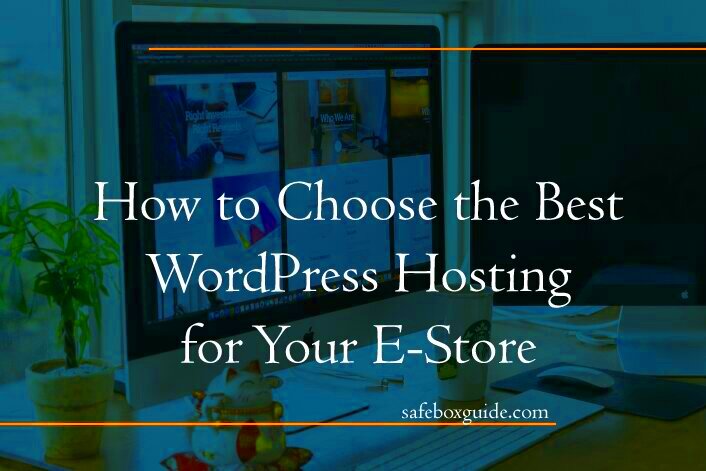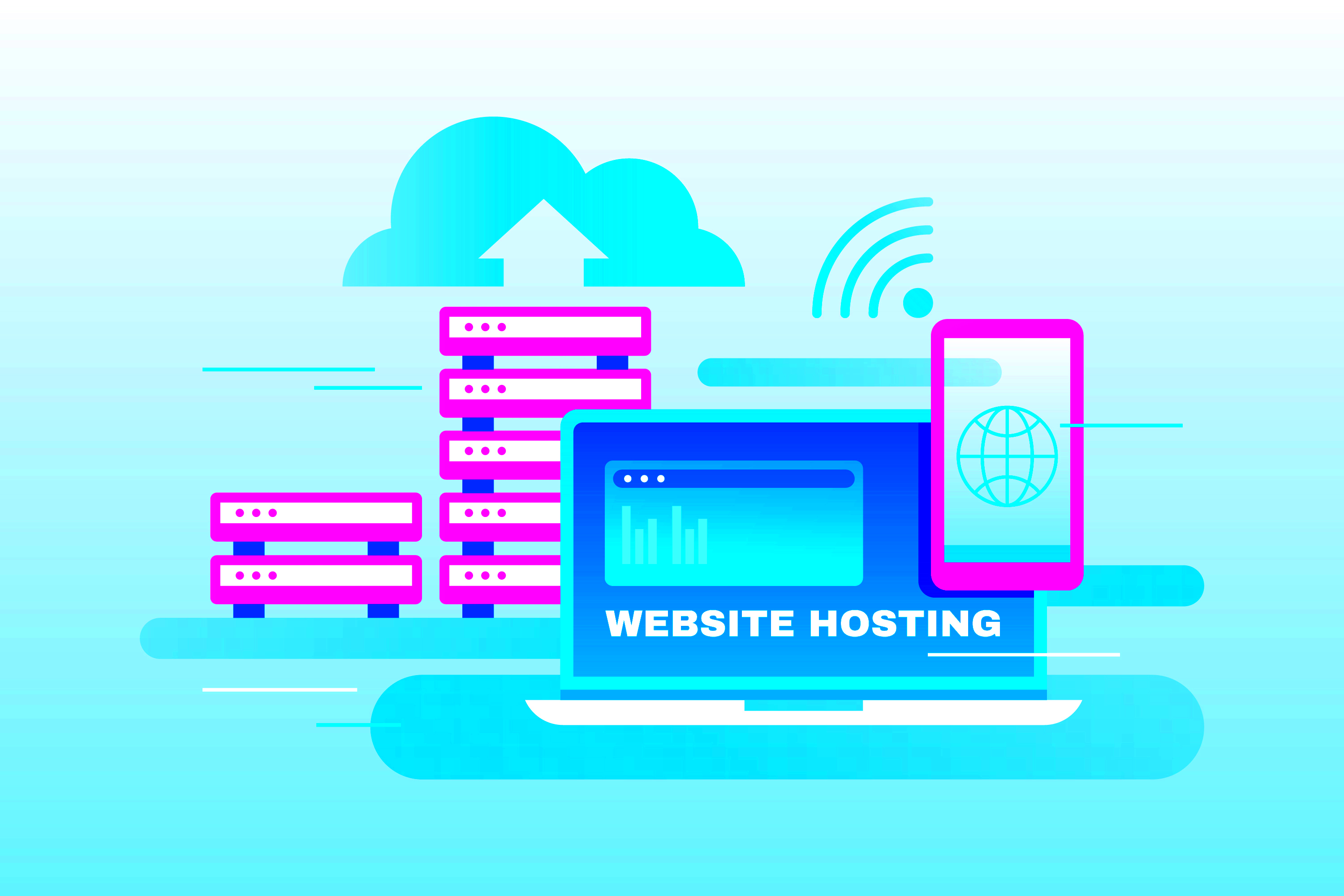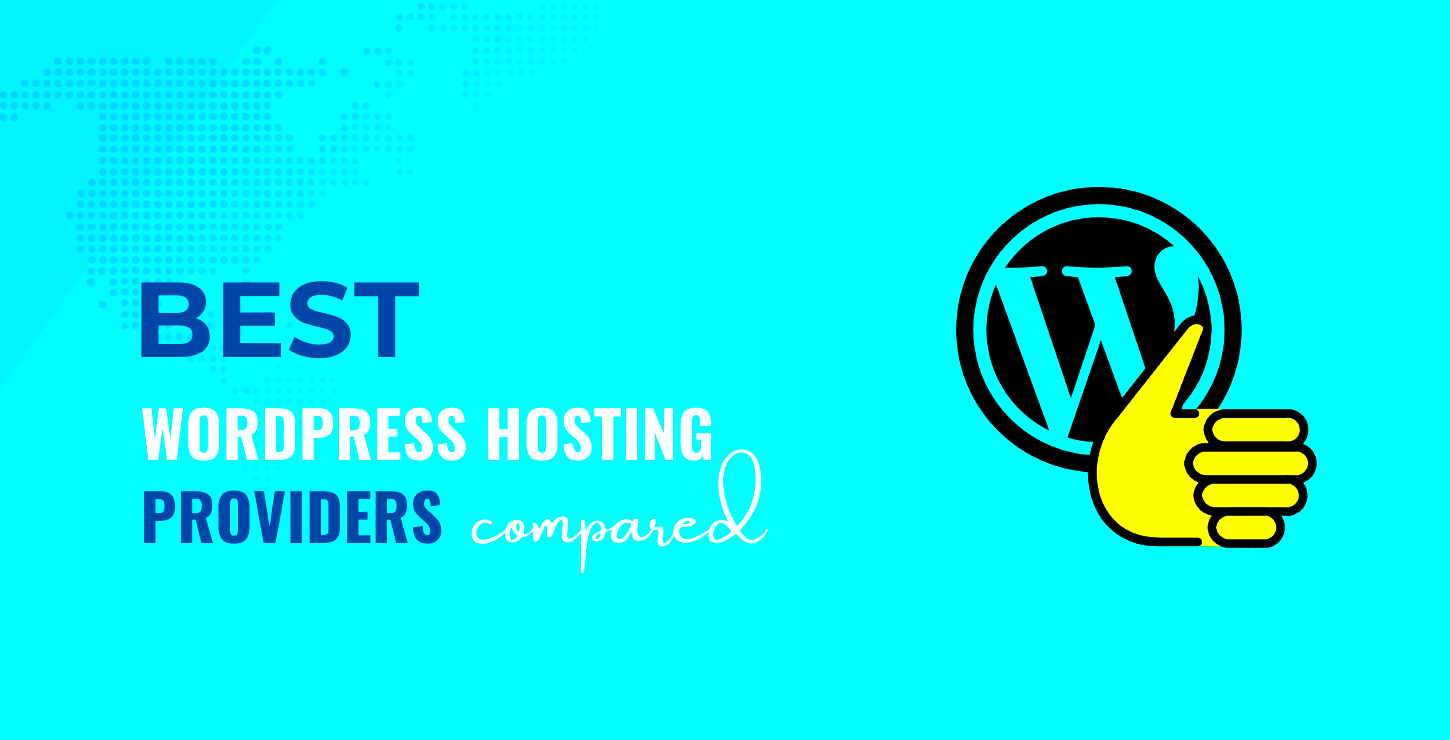Alright, let’s dive into the exciting world of WordPress eCommerce hosting! If you’re gearing up to launch an online store or enhance your existing website, you’ll need a solid hosting provider to ensure your site runs smoothly. Unlike regular hosting, eCommerce hosting involves some added layers of complexity to support transactions, secure customer information, and handle higher traffic volumes. This guide will help you understand what makes WordPress eCommerce hosting unique and how to choose the best option for your business needs.
Key Factors to Consider When Choosing Hosting

Choosing the right hosting for your WordPress eCommerce site can feel daunting, but it’s absolutely essential for your success. Here are some key factors to consider:
- Performance and Speed: Fast load times can significantly impact your sales. Look for hosting providers that offer optimized server performance, caching solutions, and a Content Delivery Network (CDN).
- Security Features: Security is paramount when handling sensitive information like payment details. Make sure your hosting plan includes SSL certificates, firewalls, and regular backups.
- Scalability: Your eCommerce site may grow over time, so choose a host that allows you to easily upgrade your plan without significant downtime or hassle.
- Customer Support: 24/7 customer support can make a world of difference, especially during critical moments. Research providers that offer multiple support avenues such as chat, phone, and email.
- Cost: While budget is a factor, don’t just go for the cheapest option. Evaluate the value provided in relation to your needs, and be wary of hidden costs.
In addition to these factors, consider reading customer reviews and comparing different hosting packages. This careful deliberation will set your eCommerce store up for success!
Types of Hosting Options Available

When it comes to hosting your WordPress eCommerce site, you’ll encounter several types of hosting options. Each option comes with unique features, benefits, and potential drawbacks. Let’s break them down so you can choose the best fit for your needs:
- Shared Hosting: This is the most budget-friendly option for beginners. You share server resources with other websites, which keeps costs low. However, if a neighboring site consumes too much bandwidth, your site’s performance may suffer.
- VPS Hosting: Virtual Private Server (VPS) hosting provides more stability than shared hosting. Although you still share a server, it’s partitioned into separate virtual spaces. This means better performance and more control, making it suitable for growing eCommerce sites.
- Dedicated Hosting: With dedicated hosting, your site has an entire server to itself. This means top-notch performance, security, and customization options. However, it comes at a premium price, making it a better choice for established businesses with high traffic.
- Cloud Hosting: Cloud hosting offers scalable resources because your website is hosted on multiple servers. This means if traffic spikes suddenly, additional resources can be allocated. It’s a flexible option for eCommerce sites that expect fluctuating traffic.
- Managed WordPress Hosting: This type focuses specifically on WordPress sites, offering optimized performance, increased security, and automatic updates. It’s easier to manage for those who prefer not to dive into technical details.
Choosing the right hosting option can significantly impact your site’s performance, security, and overall user experience. So take your time and weigh the pros and cons of each!
Performance and Speed: Why They Matter
Performance and speed are critical factors for any eCommerce website. In an age where consumers expect quick load times and seamless browsing, even a second delay can lead to a loss of sales. Let’s dive into why these elements are vital:
- User Experience: A fast-loading site enhances user experience. Shoppers are more likely to stay on a site that loads in under three seconds. If your site is slow, potential customers may become frustrated and abandon their shopping carts.
- SEO Benefits: Search engines like Google prioritize speed in their ranking algorithms. A quicker website not only engages users but can also improve your search ranking. This increased visibility can lead to more organic traffic and ultimately, more sales.
- Conversion Rates: Studies show that even a slight delay in page loading can decrease conversion rates. If your site takes too long to load, potential customers may opt for competitors with faster options. This means investing in good hosting can directly impact your bottom line.
- Mobile Optimization: With a significant number of customers shopping on mobile devices, ensuring that your site performs well on these platforms is crucial. Fast-loading sites are not only essential for desktop users but even more critical for those on smartphones.
In summary, performance and speed can’t be overlooked when hosting an eCommerce site. They play a vital role in user satisfaction, SEO, and ultimately, your sales. Therefore, choosing a hosting solution that prioritizes speed and performance is essential for your WordPress eCommerce site’s success.
Security Features for Ecommerce Sites
When it comes to running an ecommerce site on WordPress, security isn’t just a checkbox on your to-do list; it’s a crucial component that can make or break your online business. Cybersecurity threats are rampant, and ecommerce websites often face a plethora of risks, such as data breaches, hacking attempts, and credit card fraud. Therefore, choosing a hosting provider with robust security features is non-negotiable.
Here are some essential security features to look for:
- SSL Certificates: An SSL certificate encrypts data exchanged between your site and its users. This not only increases security but also boosts customer trust, as browsers flag sites without SSL as “not secure.”
- Firewalls: A good hosting provider will implement web application firewalls (WAFs) that help block malicious traffic before it reaches your site.
- Regular Backups: Ensure your hosting plan includes automated backups. In case of a security breach, you’ll want to restore your site as quickly as possible.
- Malware Scanning: Look for hosts that provide regular malware scans. This will help identify and mitigate risks before they escalate.
- Two-Factor Authentication: Enabling 2FA adds an extra layer of security by requiring a second form of identification besides your password.
By prioritizing security features, you create a safer shopping experience for your customers, build trust, and ultimately protect your hard-earned revenue.
Scalability: Preparing for Growth
In the world of ecommerce, growth can happen quickly. One day you might be running a modest online store, and the next, you’re flooded with orders. That’s why scalability in your hosting solution is vital. It doesn’t just mean that your site can handle increased traffic; it also refers to how easily you can upgrade your resources to meet changing demands.
Here are a few key aspects of scalability to consider:
| Feature | Importance |
|---|---|
| Flexible Plans: | With flexible hosting plans, you can easily upgrade or downgrade based on your business needs. |
| Resource Allocation: | Look for hosts that allow dynamic allocation of resources like bandwidth, storage, and processing power. |
| Server Performance: | A robust server infrastructure is imperative. Shared hosting may be cheap, but it often fails to deliver the speed and performance a growing ecommerce site demands. |
| Cloud Hosting: | Consider cloud hosting as it’s generally more scalable, allowing you to tap into a network of servers in response to traffic fluctuations. |
By carefully selecting a hosting provider that offers scalability, you set your ecommerce site up for future success. You won’t be caught off guard should a viral post or a seasonal sale drive a massive influx of traffic. With the right hosting, you’ll be ready to embrace growth head-on!
Customer Support and Reliability
When it comes to running an eCommerce site on WordPress, customer support and reliability are two critical factors that can make or break your online business. Imagine this scenario: you’ve set up your store, added your products, and suddenly, your website goes down. In these moments, having swift and efficient customer support at your disposal is invaluable. You’ll want a hosting provider that offers 24/7 support so you can get back on track, no matter what time it is.
Look for hosting companies that provide multiple channels of support including:
- Live Chat: Instant messaging can be a lifesaver for quick queries.
- Phone Support: Sometimes, a conversation is the fastest way to resolve an issue.
- Email Support: Good for non-urgent matters, but response times may vary.
- Knowledge Base: A comprehensive library of articles and tutorials can empower you to solve problems on your own.
Additionally, you’ll want to gauge the reliability of the hosting service. Look for companies that offer:
- 99.9% Uptime Guarantee: Your website must be accessible to customers at all times.
- Regular Backups: This ensures your data is safe and easily recoverable in case of emergencies.
- Scalability: As your business grows, your hosting should be able to accommodate that growth smoothly.
Ultimately, the best hosting provider will not just respond when things go wrong, but will also proactively help you optimize your site for performance and security.
Cost vs. Value: Finding the Right Balance
When it comes to selecting a hosting provider for your WordPress eCommerce site, it’s essential to understand the difference between cost and value. It’s tempting to go for the cheapest option available, but just like in any other aspect of business, that can come back to bite you later on. The goal is to find a hosting service that offers great value for the price you pay.
Here are some factors you should consider in this balancing act:
| Factor | Low-Cost Hosting | Value Hosting |
|---|---|---|
| Performance | May lead to slower load times | Optimized for speed and efficiency |
| Support | Limited availability and responsiveness | 24/7 support with multiple contact options |
| Features | Basic features with no frills | Advanced features like security, backups, and more |
| Uptime Guarantee | Lower uptime, leading to potential revenue loss | High uptime ensures your site is always live |
While the initial cost may be higher with a value-based provider, consider the long-term benefits. Faster load times lead to better user experiences, and outstanding support can save you time and headaches down the line. In essence, seek out a hosting service that aligns with your eCommerce goals and offers robust features that justify the investment.
Top Hosting Providers for WordPress Ecommerce
When it comes to setting up an eCommerce site on WordPress, choosing the right hosting provider is crucial for your business’s success. With so many options available, it can be overwhelming to find the perfect match for your needs. Here’s a breakdown of some of the top hosting providers tailored specifically for WordPress eCommerce:
- SiteGround
- Bluehost
- Kinsta
- WP Engine
- A2 Hosting
SiteGround is well-known for its exceptional performance and customer support. Their managed WordPress hosting is optimized for speed and security, and they offer free daily backups along with a staging environment for easy site updates. The combination of scalability and robust features makes it a solid choice for eCommerce.
Bluehost is officially recommended by WordPress itself, making it a reliable option for eCommerce. They offer a range of plans suited for various budgets and requirements, complete with a free SSL certificate and one-click installation. Their 24/7 support is an added bonus!
Kinsta stands out for its premium managed WordPress hosting. With a focus on performance and speed, they utilize Google Cloud’s infrastructure for lightning-fast loading times. Their built-in caching, free CDN, and automatic daily backups are great features for any eCommerce site.
If you’re looking for managed hosting specifically optimized for eCommerce, WP Engine might be your go-to. They provide a suite of tools designed to enhance WordPress eCommerce performance, including auto-scaling and advanced security features that keep your online store safe.
A2 Hosting is known for its speed and reliability. With their Turbo plan, you can achieve some of the fastest loading times for your eCommerce site. The ability to scale easily as your site grows is just icing on the cake!
In summary, consider your site’s specific needs—such as traffic volume, speed requirements, and customer support—when choosing a hosting provider for your WordPress eCommerce site. Finding the right match can make all the difference!
How to Migrate Your Existing Site to a New Host
Switching to a new hosting provider can feel daunting, but fear not! Migrating your WordPress eCommerce site to a new host doesn’t have to be a terrifying task. Here’s a step-by-step guide to help you make the transition smoothly:
- Choose Your New Host
- Backup Your Existing Site
- Export Your Database
- Transfer Files to New Host
- Update DNS Settings
- Test Your Site
Before making any moves, select a new hosting provider that fits your needs. Compare features, pricing, and support options. Once you’ve made your decision, sign up for a plan that suits your eCommerce requirements.
Before doing anything else, it’s critical to create a complete backup of your existing WordPress site. You can use popular plugins like UpdraftPlus or All-in-One WP Migration, which make the process a breeze.
Log in to your current web host’s cPanel, navigate to phpMyAdmin, and select your WordPress database. Use the export feature to save a copy of your database, as this contains all the content and settings for your site.
Connect to your new hosting provider via FTP and upload your WordPress files, including the wp-content folder and any custom installations. Remember to import the database file that you exported earlier.
After successfully transferring files and databases, update your domain’s DNS settings to point to your new host. It may take some time for these changes to propagate, so don’t panic if you don’t see immediate results!
Before fully going live, test your site thoroughly to ensure everything is functioning as expected. Look for broken links, missing images, and any issues that may have arisen during the transfer.
Once you’ve verified everything is working correctly, you’ll be all set! Congratulations on completing your WordPress eCommerce site migration. Remember, keeping a backup of your old site, just in case, is always a smart move!
Choosing the Best Hosting for WordPress Ecommerce Sites
When it comes to running a successful ecommerce site on WordPress, choosing the right hosting provider is crucial. The hosting service can significantly affect not only the speed and reliability of your website but also its security and overall performance. Here are some key factors to consider when selecting the best WordPress hosting for your online store:
- Type of Hosting:
- Shared Hosting: Ideal for beginners with smaller stores, but may lack speed and resources.
- VPS Hosting: Offers more control and resources at a mid-range price, suitable for growing businesses.
- Dedicated Hosting: Provides maximum control and resources, best for large ecommerce sites with high traffic.
- Managed WordPress Hosting: Specifically optimized for WordPress, includes support and automatic updates.
- Performance Features:
- High uptime guarantee (99.9% or more)
- Fast loading speeds
- Content Delivery Network (CDN) integration for global performance
- Security:
- SSL certificate included for secure transactions
- Regular backups and malware scanning
- Firewall protection and DDoS mitigation
- Customer Support: 24/7 support via live chat, phone, or email is essential for quick issue resolution.
- Pricing and Scalability:
- Transparent pricing without hidden fees
- Ability to scale resources as your business grows
In conclusion, when choosing the best hosting for your WordPress ecommerce site, prioritize performance, security, and reliable support while considering your specific needs and budget. An informed choice will ensure your online store runs smoothly and efficiently, paving the way for your business’s success.



